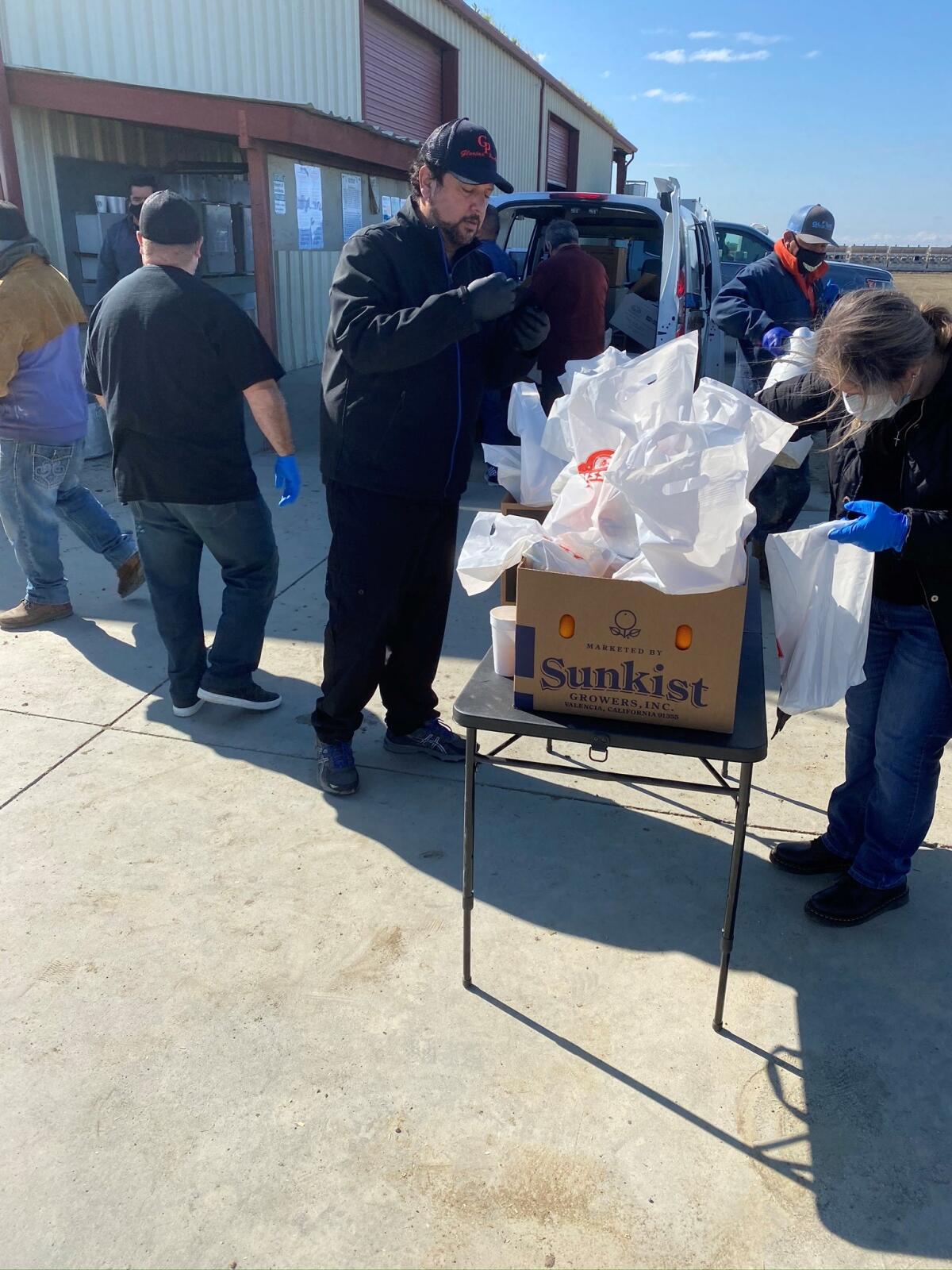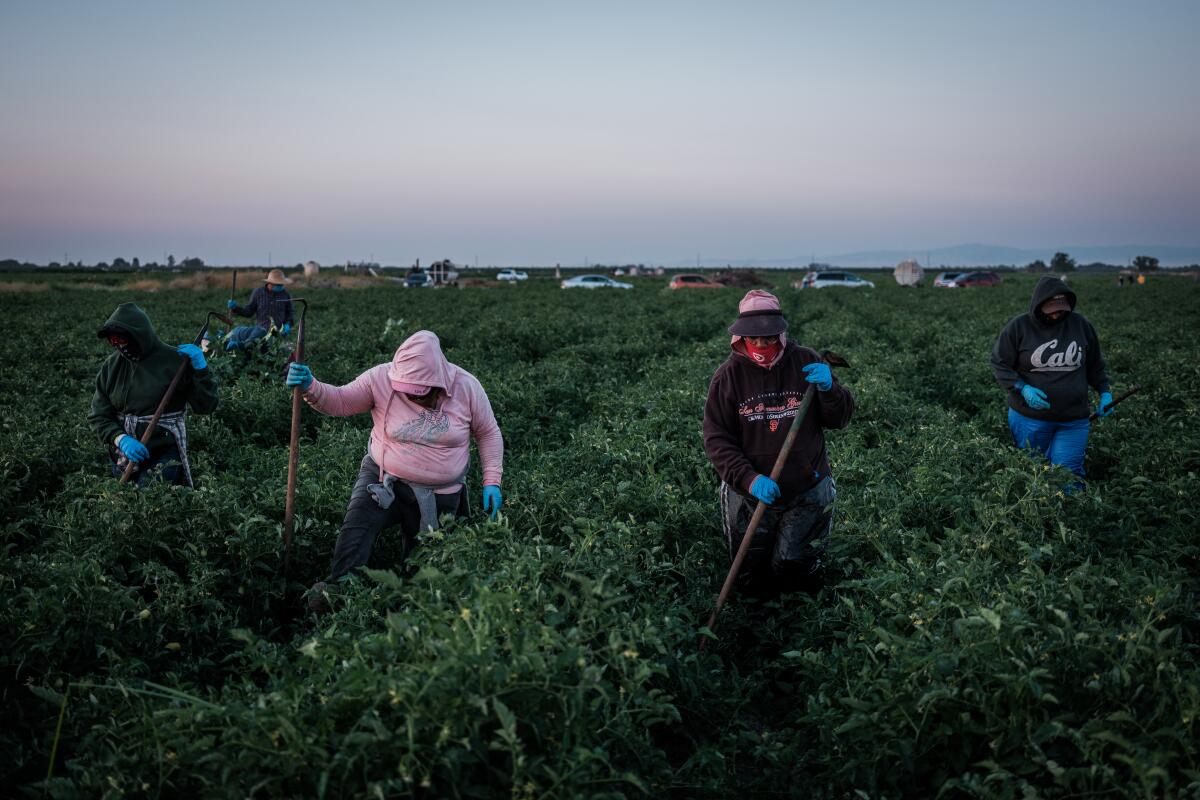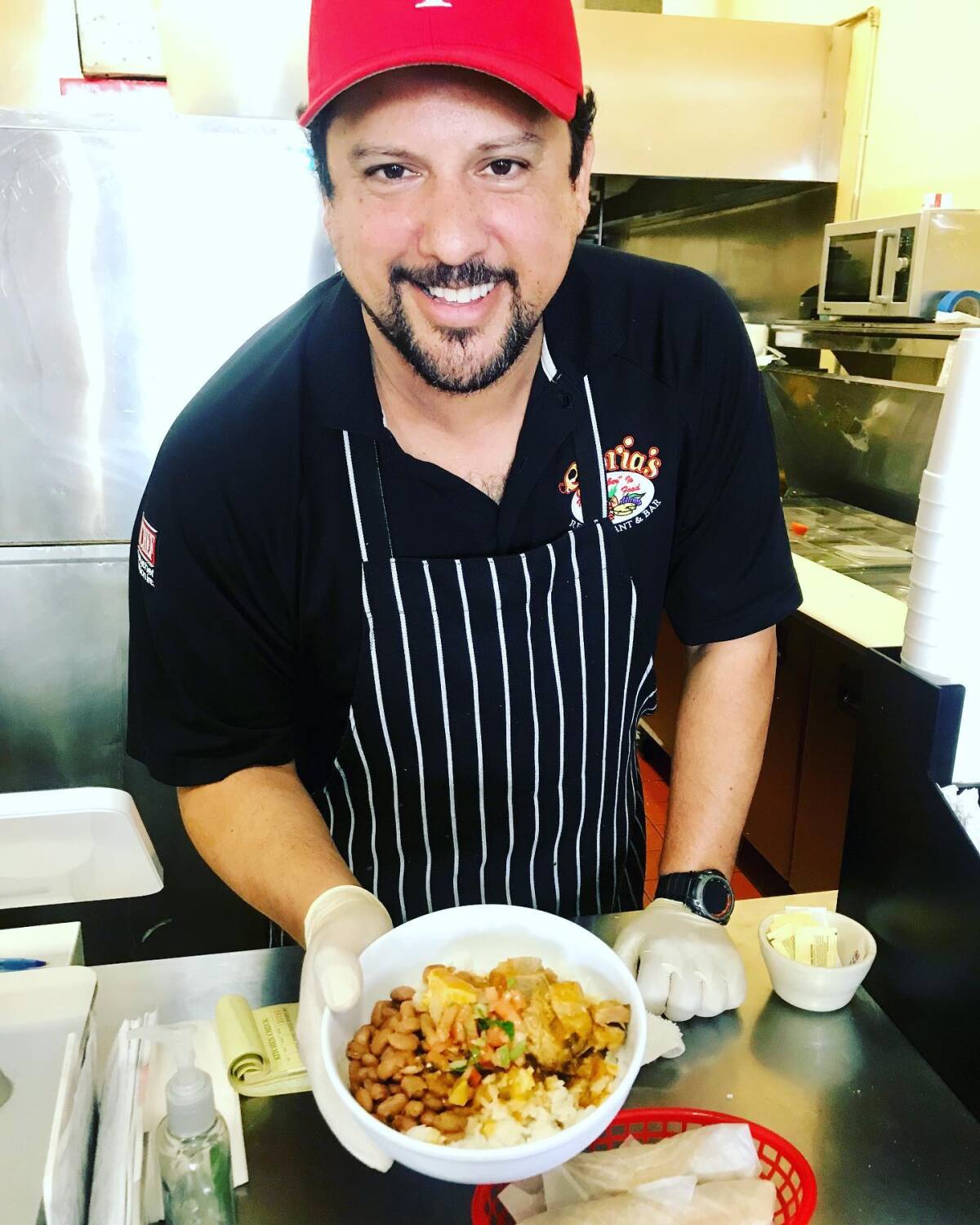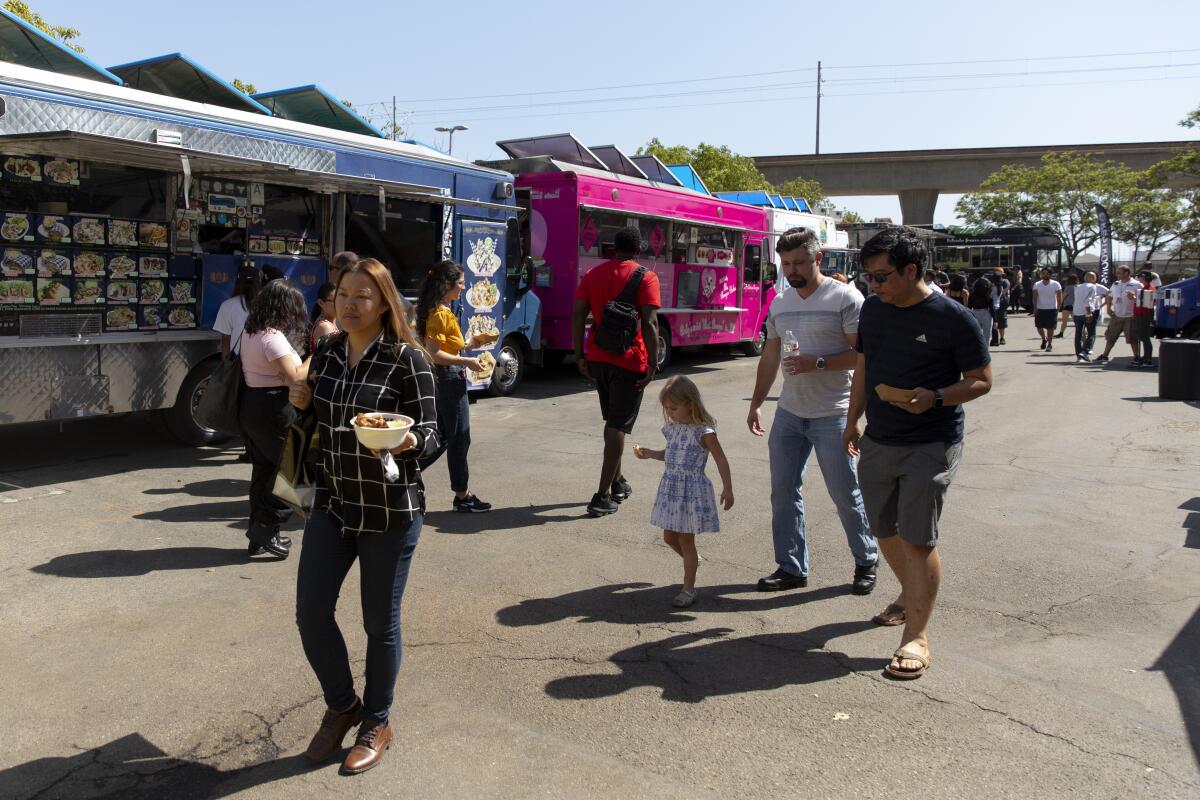He fed farmworkers during the pandemic. Now chef Juan Sanjuan wants to make ‘magic’ in L.A.

- Share via
Chef Juan Sanjuan is known far and wide for his spectacular Mascota, Jalisco-style green pozole. Others of us know him for his powerful bravado voice that rates with the best of professional mariachis.
Still others, however, know him for his generous heart that led him to help thousands of people during the COVID pandemic.
Through his nonprofit organization Chefs Supporting Chefs, he managed to distribute burritos to workers considered essential but who in practice were left with nothing.
“It was very painful to see them suffering, so together with a group of chefs with whom I had worked on other projects, we decided to go to the agricultural fields to bring them some food and fun,” recalls Sanjuan.
This effort was transformed into a true production line that came to produce up to 20,000 burritos a day that were handed out in various agricultural fields in the Central Valley.
“Some heated up the tortillas, others dished up the beans, others the meat or chicken, and so on, until we finished, exhausted but happy. We would set up an entire kitchen in a few hours,” says Sanjuan.

Sanjuan, born in Montebello in the San Gabriel Valley, knows exactly what he’s talking about. Since he was a child he has been related to the gastronomic industry. His family founded the well-known Gloria’s Restaurant & Bar, which is a true Mexican food institution in Southern California.
“My parents, who are originally from Mascota, Jalisco, taught me everything, from washing dishes and cooking to accounting. It was my turn, at 12 years old, to call the IRS to tell them that tomorrow we would send them the check,” he says with a laugh.

“Ayudar a los demás puede ser adictivo porque te hace sentir bien”.
— Juan Sanjuan, director de Chefs Supporting Chefs
Sanjuan fell ill with COVID in December 2021 and thought that he might die when his oxygen levels dropped below 84 points.
“I felt so bad that I prepared the documents expressing my last will,” says Sanjuan.
Fortunately, three months later he began to recover, and by April he managed to start walking.
The disease made him realize the fragility of life and that his own had to have a higher meaning.
“Facing death so closely had a very profound impact on me,” he says, remembering the feeling of oxygen deprivation, exhaustion and faltering mental clarity.
He became certain that helping others was part of his mission, and realized how Chefs Supporting Chefs could fulfill it.
“It was something like a mystical revelation,” he tells me with conviction.
One of the sectors most affected by the pandemic was the restaurant industry. Thousands of restaurants closed, and chefs who had been laid off and had to do anything to survive could be found everywhere.
Some owners and workers quit the profession, while others began to develop small projects, such as food trucks or lunch boxes.
Juan Sanjuan was looking to start a new restaurant, so when he received a call from a friend offering him a place at 1111 W. Olympic Boulevard in downtown Los Angeles, he knew this was the summons he was waiting for.
“My restaurant is going to be called Experiencia 1111. I see it as something mystical,” he says, explaining that at this new restaurant he’ll serve all kinds of authentic Mexican dishes. “I am not a fusion chef or what is considered ‘haute cuisine.’ My thing is traditional dishes with traditional flavors.”
But it is not only the restaurant that he is interested in establishing. He wants to create a pueblo mágico, a magical town, in the heart of Los Angeles.
“I asked the owner of the premises, who also owns the alley that is in front of what will be the restaurant, to rent it to me. It’s a space that’s about 280 feet long by 60 feet wide, and that’s where Chefs Supporting Chefs comes in.”

His idea is that in the alley, which is located a couple of blocks west of the LA Live complex, he’ll create a Mexican-style market where street vendors can offer their products in a professional and hygienic manner.
“All that generation of chefs that was greatly affected by the pandemic have started their own lunch box businesses, and it is they that we want to support,” says Sanjuan.
“Chefs Supporting Chefs will help them get permits from the department of health, put them in contact, through other nonprofit organizations with which we are working, such as the New Women’s Business Center, so that they can obtain loans and economic and business advice,” Sanjuan continues. “We will help you register as a business and teach you the basics of bookkeeping and tax preparation. In the case of those merchants who do not have social security numbers, they will be helped to obtain an ITIN.”
Through T-Mobile, Chefs Supporting Chefs obtained 100 tablets for the street vendors who participate in this project to develop their social networks. A group of students will support them with digital marketing strategies.
And since one problem that street vendors face is assault, all transactions will be electronic.
Because the project requires funds to be able to offer these services for free or at a very low cost, there are plans to stage a series of cultural, gastronomic and musical events at the proposed market.
“We want to bring a piece of Mexico to the heart of Los Angeles,” says Sanjuan. “Imagine a plaza where you can get barbecue, que mole, enchiladas, pan dulce or traditional desserts.”
Part of the project’s aim is to attract other organizations of street vendors, such as those on Avenida 26, to settle there and help establish a night market with a wide variety of regional dishes, in addition to the farmers market, where the same producers can sell their goods.
Cooking is exciting and requires exceptional talent. “But that’s only part of the business,” says Sanjuan. “The other part, the less fun part is how to run the business, pay taxes, get permits. Many times the success or failure of the company depends on that.”
“That’s why we want Chef Supporting Chefs to take care of that so they can get ahead, so they can build their Mexican dream of having a business in this country.”
And that is only the beginning of a project that he plans to launch on July 11.
From his point of view, the model of the proposed market can be replicated throughout the city. “Where there is vacant land, we can put up a market, so that vendors can rotate from one place to another.”
But his biggest goal is to help chefs who lost everything during the pandemic to get ahead, so they don’t have to work for someone else.
“If you think it’s less work, you’re wrong, because having a business requires a sacrifice of 24 hours a day,” says Sanjuan. “But what I can assure you is that, at the end of the day, one can go to sleep with the satisfaction of knowing that we are building our own future.”
More to Read
Sign up for Essential California
The most important California stories and recommendations in your inbox every morning.
You may occasionally receive promotional content from the Los Angeles Times.











